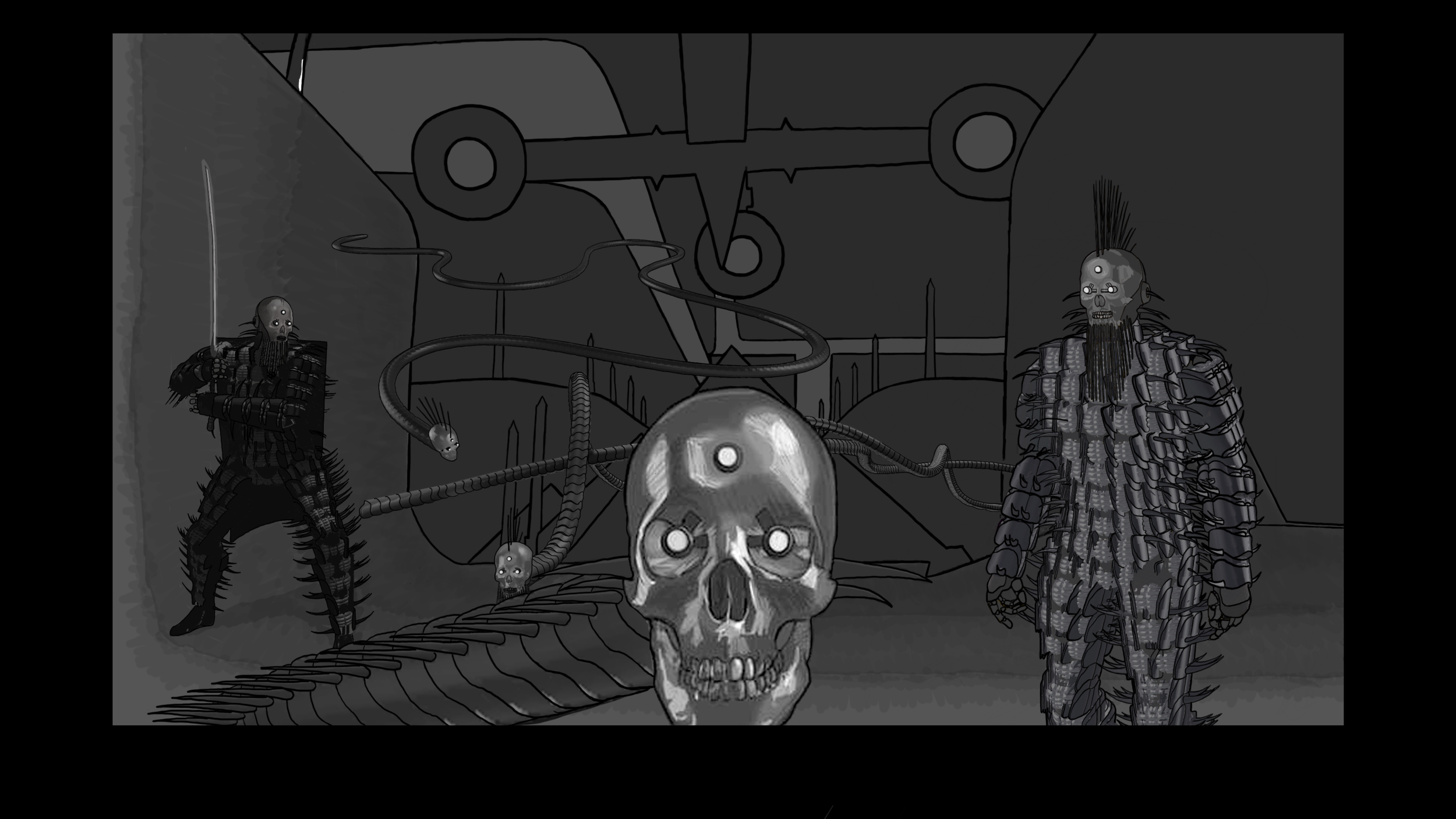
Abstract
MECHA is a retro 80’s-inspired action RPG game with survival horror and roguelite gameplay elements. You play as a cyborg in the far future, given the impossible task of restoring nature in a dying world. The player must steal the last seed from the holy cyborg city of MECHA and survive being hunted down as a terrorist by a corrupt, technologically advanced, empire. Explore a barren, procedurally-generated wasteland and experience an emergent narrative unique for each player that conditionally triggers events over time as you progress along or avoid the main quest. This game represents an exploration of forgiveness, or a lack thereof, through socio/political commentary and religious abstraction. Additionally, the gameplay mechanics available to the player expand over time as the player discovers new word-based abilities hidden throughout the wasteland.
Story
This game is an abstract expression of an existential fear of failing to succeed or survive in a society that increasingly feels setup to exploit you. It tells the story of humanity fighting against itself in an attempt to restore nature in a dying world, and serves as a commentary on the shortcomings and flaws of the western capitalistic culture we export around the world. The story highlights the lack of agency we can feel to enact or contribute to meaningful change and environmental causes, and explores the idea that we’re all distracted by systems keeping us focused on paying bills and indulging in escapist, fantasy entertainment. With technological advancements in the distant future, we have become extremely disconnected from our humanity, from each other, and from our natural world. The world of this story visualizes the worst case scenario of climate change, over-population, and extreme pollution. It is a world in which technology has persevered at all costs, and nature has disappeared.
This story is also something of an abstraction of my own life - of the journey of moving away from home and growing into many versions of myself, and in the pursuit of learning how to make video games. It is an abstraction of the experience of being far away from family and of being helpless when I received the news that my mom had cancer, represented by the death of the Braintree in the beginning of the game. It also abstracts my mother eventually overcoming and winning her battle with cancer, via the player potentially resurrecting the Braintree.
The narrative aims to remind the audience of the importance of going outside and being a part of the living world. Ultimately, the goal of this story is to achieve a conservationist reminder for all of us about the importance of taking care of our planet before it is too late.
Setting
This is the Age of Intolerance. The sixth mass extinction has already occurred, and we are now approaching the seventh. Our planet is a wasted earth where humanity has evolved into exoskeleton-covered, crustacean-like cyborgs to survive exposure to pollution and the sun. A technological city-sprawl overlays much of the planet; mausoleum-like, and ever-expanding. Oil has become the predominant and only required consumable resource for the cyborgs. Oil helps maintain their cyborg components in a symbiotic relationship that automatically replenishes any required energy and water, allowing them to survive forever.
Prologue
The game begins with the player born from the Braintree as a wild brain, part of the last blossom of wild brains. A new game introduction sequence plays, containing a series of images projected upon the player’s mind by the Braintree. After the new game intro sequence, the screen fades in and the field of view expands as the player assumes control of their wild brain avatar within the Braintree’s womb. The player hears the Braintree provide passive tutorial guidance as they begin to move around this new environment. Eventually, the player navigates upwards and out of the Braintree’s mouth, blindly emerging into what is left of our world.
The last blossom of wild brains instinctively begins to head up towards the Braintree’s mouth. They gather and wait for each other at the mouth, blinded by their first exposure to the scorched light of our earth and in awe of the dawn, a sun-rising vista presented to each brain. Slowly, one wild brain, then another, finds the courage to leap from the mouth of the Braintree, spreading their webbed tentacles to slowly parachute down to the ground like a tumbling leaf. The player can follow the passive guidance of the rest of the wild brain blossom, or can proactively journey out into the world, staying with the blossom at their discretion.
As day slowly turns to night, the blossom decides to take shelter in the shadow of a ruined, impossibly-tilted skyscraper. One of the wild brains uses their brain lightning to ignite a nearby pool of oil, sparking some semblance of a campfire.
A nighttime ambush by predatory mutants takes place at the campfire. The mutants, who use howls to locate each other, band up in a monstrous mob before charging out of the night into the blossom’s camp.

